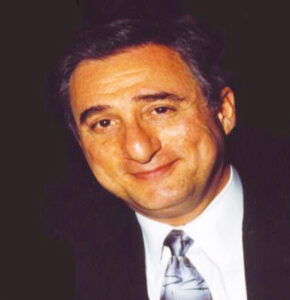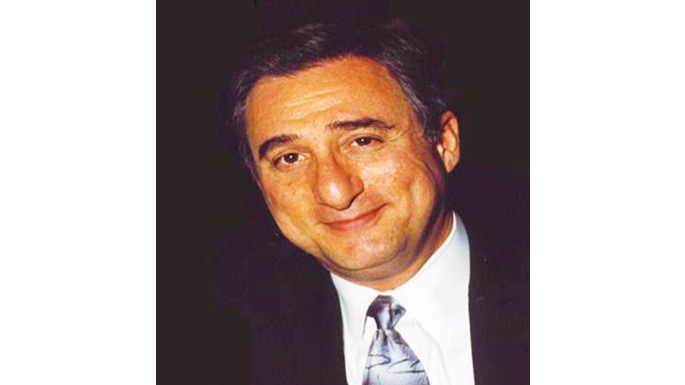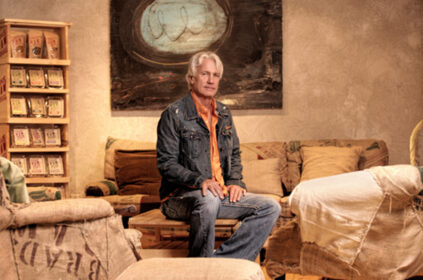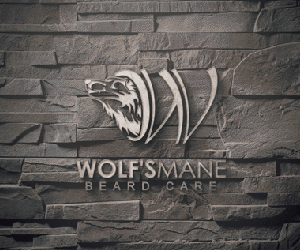Interviewed and written by Elder Lee M Harris, Sr.

Our knowledge of the term Acupuncture differ among a large majority of todays everyday citizens. The picture or just the thought of needles piercing our sensitive skin just draws us up like a tight fried pork skin. Dr. Ian Wahl has managed to change the average perspective of the use of Acupuncture based on the end results from first hand witnesses, “his patients!” Any discomfort from pain to fatigue is just a small number of things the use of Acupuncture has been used for. This article is not overall about Acupuncture. One of the main reasons for the use of it is a disease that became very close to Dr. Wahl called Celiac Disease, dealing with the intake of Gluten which you will learn all about from the man himself.
I had the opportunity to speak with Dr. Wahl concerning his care and sensitivity about such a quiet and progressing disease. Below is the interview he was willing to share with our readers:
Elder Lee M. Harris, Sr.: Tell me a little bit about Dr. Ian Wahl.
Dr. Ian Wahl: I’m from Memphis, Tennessee. I went to school in St. Louis at Washington University. I was a psychotherapist back in the seventies. Eventually, I started working with businesses then with individual people and families. I made a decision quite a few years ago, that I really didn’t feel as fulfilled at what I was doing as I did when I first started. So, I decided that something that was a hobby of mine which was Acupuncture and Asian medicine, which I had been exposed to in 1971. My specialty was fertility and treating people with Asthma and Allergies, but not so much food allergies. The reason we focused on the Asthma and Allergies was due to the fact that my oldest son had Asthma and my youngest daughter had Celiac Disease.
EH: What exactly is Celiac Disease?
Dr. Wahl: It’s actually genetic markers that you have. It is not an allergy, it’s not a plain everyday intolerance, such as, getting a little sick if you eat a certain food. When you have the disease, you are not able to metabolize gluten, whether it’s in wheat, rye, barley or certain types of oats. Most of them are American oats and that’s strictly due to cross contamination with wheat fields. Irish oats seem to be fine because they don’t grow the same way.
EH: Can you also explain Gluten?
Dr. Wahl: It’s a protein that’s in certain grains! It’s not bad for you and me. It would be fine even though I carry the marker for Celiac Disease. When they did the genetic testing in Chicago many years ago, I carried the markers. What happens is when you ingest this gluten, if you have Celiac Disease, you can’t metabolize it. Your body thinks it’s something bad for you and then it attacks it, which it actually attacks you and your small intestine. The villi of the small intestine, those little fine hairs that absorb the nutrients out of food start to die, so you are then basically kind of starving to death. You don’t really die from Celiac Disease. If you’re going to die it’s going to be from complications to it, because you’re becoming malnourished and then bad things began to happen to you.
For most people, “you don’t even know if you eat something with gluten in it!” It’s only to people who have a simple allergy to it, which you wouldn’t know. You can have a wheat allergy and that can be corrected. Celiac Disease, unfortunately at this time, no one knows how to correct it, because it’s genetic. It’s an autoimmune disease. Thirteen years ago when my daughter was diagnosed with it, it appeared overwhelming, because you didn’t go into a grocery store and find gluten free items in your regular store. When she was diagnosed, she had so many food allergies. Back then, we had no way of treating them, so we ended up putting her on a diet of rice, lamb, bananas and apple sauce. I remember when she was seven years old and she burst into tears because she wanted to know how she was going to eat if / when she goes to college. She was only seven but she meant it sincerely. Today she is twenty two years old and in college. She takes care of herself, and if you met her you would never think there was anything wrong with her.
There are people out there who claim they can cure Celiac Disease, but I will tell you that you won’t find people who were diagnosed with it through both a blood test and through an endoscopy, which they have to take a biopsy of your small intestine.
EH: What would be some of the symptoms that would set you off to think you may need to get tested for Celiac?
Dr. Wahl: That’s a good question. The primary symptom are gestural intestinal. There are skin irritations that can happen. Like with our daughter, she had open sores on her body that no one could really identify where they were coming from. They could be short term symptoms, but the primary ones are like diarrhea or constipation, or you could have nausea, vomiting, difficulty concentrating, irritability, skin rashes and longer term issues are chronic fatigue, anemia, and osteoporosis. If your bones fracture easily, and you have a problem keeping your weight on, you may have Celiac Disease. Society encourages us to look great or down sized. You could look at my daughter and say she looks great, but she’s saying, “I can’t put the weight on!” That is an issue. She stayed on the gluten free diet and she reaches a certain weight level, but what is she going to do?
EH: On a percentage, what would you say the number is for how many people who walks into the doctor’s office and leave finding out they have Celiac Disease?
Dr. Wahl: We know from studies done at the University of Chicago and Maryland, they actually say approximately one out of one hundred thirty three Americans. They are also claiming that about two million aren’t even aware they have it that does actually have it! That’s a lot of people. So you go to your doctor with the symptoms and here’s the problem I see in my clinic. My clinic is the Midwest Allergy Relief Clinic and we typically work with and treat allergies. We have people who come in and say they were diagnosed with Celiac Disease and I say, “Do you have the blood test results?” They say, “I did not have the blood test, my doctor, my chiropractor, my naturopath told me this!” I tell the patient this, “I’m in alternative health also, and you can’t just say you have Celiac Disease just because you think you have it!” You have to be tested for Celiac. You can’t be tested unless you’re already eating gluten, because it won’t show up in the blood test! As soon as you’re gluten free your stomach line will start to heal. In other words, it’s correctable. You may live with the disease, but not with the symptoms.
EH: As long as you continuously eat the gluten it will continuously come back and show up?
Dr. Wahl: That’s exactly right! You get sicker and sicker as you get older, whereas, when you stop eating the gluten, you start to get better. Here’s where the rub comes in, “do you have Celiac Disease or do you have a weed allergy, which is a sensitivity to weed?” So this is not the same thing and it doesn’t mean you have to be gluten free. They just need to stay away from weeds or get treated for it. Go to www.midwestallergy.com. You’ll see that lots of people can get treated for weed sensitivity. This is the irony of it, I treated my daughter for weeds and for gluten thinking will it work and of course, it doesn’t.
EH: So, Dr. Wahl are you saying to some degree that cereal in the morning, as we would commonly think is good for the body?
Dr. Wahl: This is absolutely right, it’s great to the body, but it doesn’t have sensitivity to it! It’s not good for people diagnosed with Celiac Disease to eat out because of cross contamination.
EH: It takes control and knowing what to do to find out whether you have this disease or not because most people have never heard of this.
Dr. Wahl: That’s the key. One of the problems that doctors have is telling people to just avoid all gluten, but then they don’t know if they have Celiac or not, because they can’t be tested for it. This is a catch 22. We see a lot of kids with ADD, ADDHD and its all food allergies or food sensitivities. When they get treated for their food sensitivities and are no longer sensitive to those foods, or, if they avoid those foods, those ADDHD behaviors go away. I think the two things when you’re traveling, you always want to speak with not just your server, but the manager also, to make sure that the kitchen staff will understand that your food needs to be prepared as safely as possible to avoid any cross contamination. Even if it’s something as simple as making eggs which are gluten free, you want to make them in a pan that you didn’t use earlier for something with gluten in it or cross contamination. The other is that it’s much easier to stay at a hotel where they have a kitchen in it, but you still have to bring your own pots and pans. You have to get into the habit of doing this and then it becomes easier. Also if your kids are going to camp or somewhere like that, you have to make sure they have all the right foods that are gluten free.
A study was done on Type 1 Diabetes where they took these children and tested them for Celiac Disease and found most of them had the markers. This all happened before the blood testing was available, so not all parents wanted their kid to go through an endoscopy or biopsy of the small intestine.
My wife and another lady started the very first Celiac Kid’s Group right here in Chicago and it just sort of grew. We started the Todd Wahl Memorial Fund and our oldest son was an officer in the Air Force and he was killed about nine years ago. All the money still goes to the Chicago Celiac Program, but specifically for a food basket for newly diagnosed children. This group gives them foods they can eat and it shows you what you can buy in a regular grocery store. Now that the major manufacturers have gotten involved with it it’s a different story.
We have to go back to nutrition, what are we eating and how do we change it? It’s fascinating that the University of Chicago would completely shift their way of thinking away from pharmaceuticals and surgery and look at this as a nutritional problem. The big question is how do we make it clear to the public, that if you’re diagnosed with it?
EH: It sort of sounds like giving chemo and radiation for treating cancer, but then you have the treatment centers going with exercise, herbs, foods and so on.
Dr. Wahl: Yes, and getting the same results. In our clinic Acupuncture would be considered, herbs, exercise, hypnosis, yoga, meditative techniques, chiropractor, supplements and even physic healing. We also use allergy therapeutic treatments which are pretty high tech.
EH: Is there any other tip you would like to share with the readers at this time Dr. Wahl?
Dr. Wahl: I think the main thing is that you have to be careful of what you read and with certain practitioners that claim they can cure Celiac Disease, if it’s truly been diagnosed! It does take a medical MD to diagnose it because you do have to have the blood test. You are better off getting the blood test done through a Gastro Oenologist. The websites that are pretty accurate are www.glutenfree.com, www.glutenfreemall.com, www.csaceliac.org, and www.celiacdisease.net. If a person has been diagnosed with it, it’s not the end of the world. It’s not that hard because there is so much information out there. There is no reason to be completely gluten free if you don’t have Celiac Disease
EH: So in other words, wheat can be as much of a problem as gluten when it comes to Celiac Disease?
Dr. Wahl: Oh yea, because wheat is the primary source of gluten. Whatever the reason, American grown oats seem to have a problem for Celiac. You have to be careful today when saying things like, “everyone need to eat more whole grain!” Know that everyone shouldn’t eat more whole grain if it makes some of them sick, because it’s just not across the board!
EH: I see a lot of doctors make that assessment that it is across the board when this is not good information to be giving out.
Dr. Wahl: Another thing is lactose intolerant, not dairy allergy, because we’ve only seen a very few cases where people were really lactose intolerant because it’s genetically. We need more people like you that want to promote what we’re doing.
EH: There are so many things we just don’t know that is a great benefit to all of us! Thank you so much for the opportunity to speak with you today and much continued success in your mission to educate and promote public awareness and consciousness!
To contact Dr. Ian Wahl:
www.Infoallergyrelief.com
Last modified: April 16, 2023

















